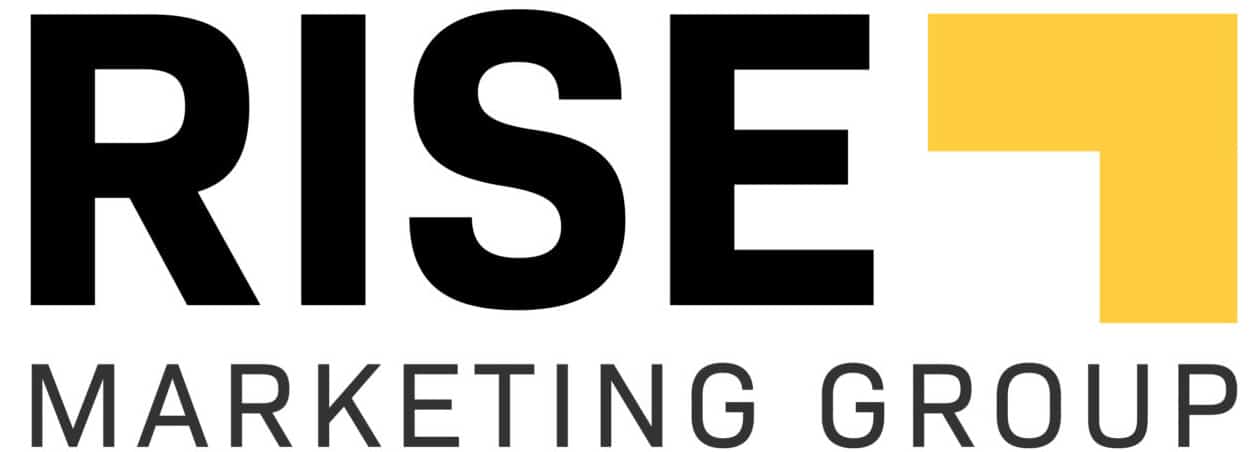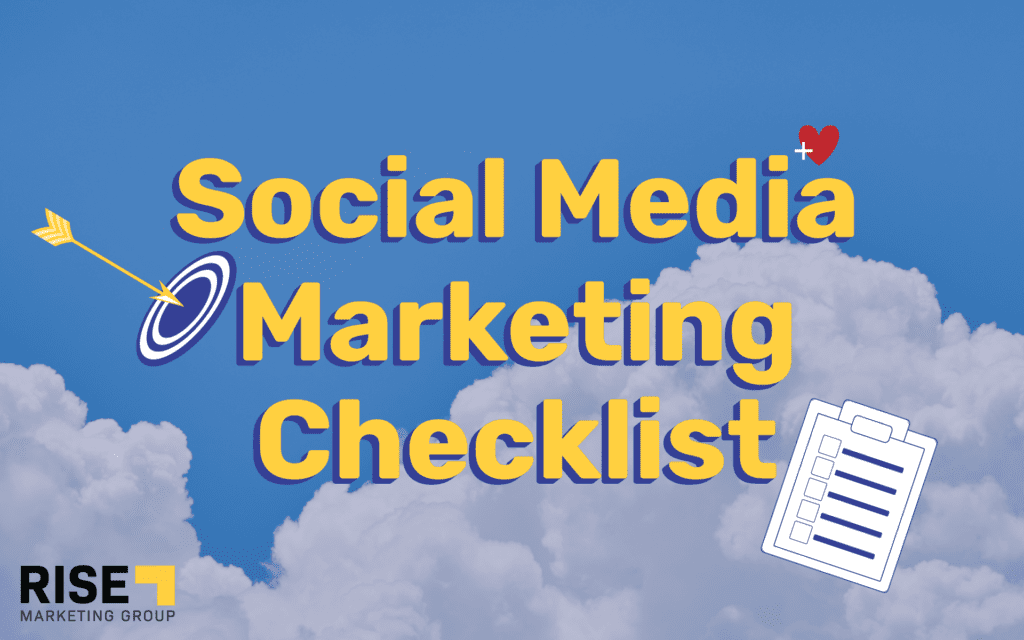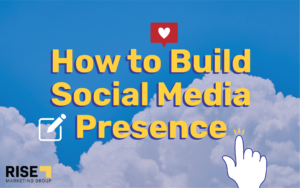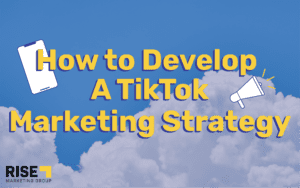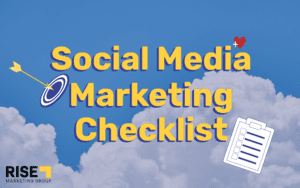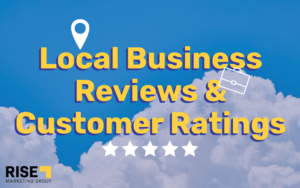Social Media Marketing Checklist
Social media is a crucial part of marketing. Two-thirds of internet users spend their time on social media sites and it is a valuable way to reach a wide range of people. According to Hubspot, 77% of marketers found social media to be an effective part of their marketing strategy in the year 2021. To begin targeting your social media strategy and creating a campaign there are specific steps to take. In this blog, we will discuss the most effective tools for creating a social media campaign.Identify Your Audience
- You must understand and organize your audience.
- Send the right message to the right people:
- Compile data to reach target market – need to know what they like (age, location, engagement patterns to effectively market to them)
- Use social media analytics. platforms like Instagram and Facebook have “insights” or built-in analytics that can tell you about followers
- Check the competition. Understanding the competition gives insights into how to talk to your audience. Look at what competitors are doing wrong to fill in the gaps in your strategy.
- Social listening strategy to find their wants and needs

Define Your Social Media Campaign Goals
- Create goals for your social media efforts. SMART goals are effective – provide a helpful framework to create foundational goals and meet your overall objective.
- SMART:
- Specific: be clear and precise about what you hope to achieve. A specific social media goal, like to increase Twitter followers by 20%
- Measurable: Measuring helps decide if you have reached your goals. Using metrics to track your progress helps with pivoting goals if need be. If you find likes and follows do not lead to website traffic, you can change the metric to something that will help you achieve your goal.
- Achievable: Set risks that are reasonable so that clients are not discouraged and you do not create friction in the business plan. Make specific, measurable goals, and adjust if you are not reaching them.
- Timely: Keep yourself accountable and have time limits on goals. Set a specific cadence to check in and ensure that you are staying on track.
Allocate Resources / Channels You Will Use
Social Media management requires:- Strategic Thinking
- Organizational Skills
- Branding expertise
Develop Unique Plan / Strategy for Each Platform
Posting on as many social media platforms as possible is not as effective as it appears. This could derail your social marketing strategy. For example, if you are attempting to target ages 50 and up, you will find that most of your audience is on Facebook. So it is not worthwhile to focus on Instagram. Know your audience and where they spend their time. When creating a social media strategy focus on:- Where your audience is
- Where do your competitors post
- What your metrics tell you
- Facebook: offers quality video streaming, like live video, as well as a high-functioning messaging platform that allows brands to interact with their followers one-on-one.
- Instagram: supports more visually compelling posts and creative short videos.
- Youtube: is best for longer informational or entertaining video content.
- Twitter: allows for real-time conversations, news updates, and alerts.
- LinkedIn: works well for long-term written content, like blog posts.
- Pinterest: lets users discover content, and relies on visuals to catch their attention.

Create Content Calendar
A content calendar is a useful tool for teams to collaborate and work together on social media posts. The process of posting, creating posts, and brainstorming becomes effortless when it is accessible to everyone in one place. Content Calendar Capabilities- Design assets personally or with a graphic designer
- Write informative and unique copy for content and get feedback
- The calendar becomes a shared space to collaborate and refer to when posting or scheduling posts
Post Relevant Content Regularly
- Success on social media is a matter of posting compelling, engaging content consistently. Businesses that look dependable and offer timely knowledge show they care about the audience.
- Prioritize quality over quantity.
- Algorithms change but posting regularly holds true. This makes your content more likely to show up on newsfeeds.
- Focus on consistent, relevant content, then you show the algorithms that your posts are worthy of showing up in various newsfeeds and ultimately will attract followers to your page.
Community Management – Manage Campaign
Social media users enjoy interacting with Brands. Brands experience benefits like:- Social proof of your business
- Expanded market reach
- Boosted brand awareness
- Cost-efficiency
- Social media interactions
- Make the audience feel seen, heard, and understood
- Allows you to monitor conversations in real time and answer questions or concerns from your audience promptly
- Asking questions relevant to your offerings
- Create a FB group for your audience
- Using GIFs, videos, and emojis to spice up messages
- Utilizing platform tools like Live video on IG
Maintain Professionalism
You are always representing the business when you post/comment/like on social media- Posts are taken out of context often which can lead to conflict
- Consider creating a social media policy when multiple members are working on an account to guide posts and conversations
- Clear expectations about what to post
- Instructions on how to respond to negative posts
- Platform laws and rules to follow
- Brand considerations
- Security Protocols
Reflect Brand Identity
Brand identity: what helps people connect to your business and sets you apart from your competitors. All marketing, print, digital, and social media should be consistent. Brand consistency can be challenging, especially when you are just starting out. It is important across channels, social media especially. As you post think about:- How you talk to your customers
- Posting similar visuals across various channels
- Focusing on your unique selling point
Prioritize Quality Over Quantity
You can be marked as spam if there are too many low-quality posts happening on your page. To mitigate these risks, create a social media content calendar.- Categories: post, post caption, post visual, and which platforms to post on.
- Does this content help my followers?
- Is this original?
- Is this actionable, inspiring, or entertaining?
- Does this content have cited sources, if needed?
Measure Results – Choose Which Best to Monitor
Many factors affect social media marketing, which is why it is important to analyze and measure results. Analytics come in handy because they help:- Optimize campaigns
- Create new goals
- Assess tracking metrics
- Reach
- Engagement
- Impressions
- Mentions
- Post clicks
- Video views
